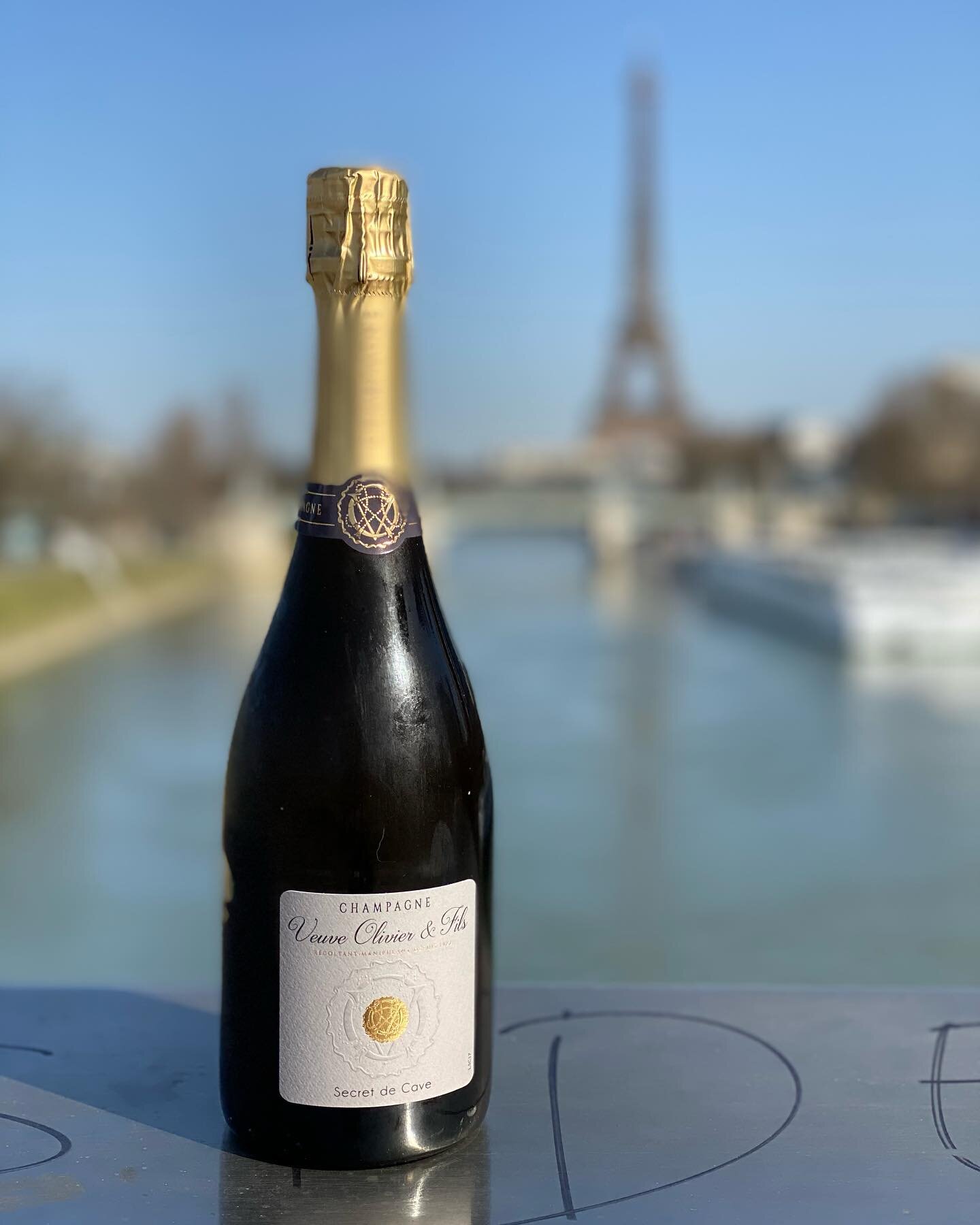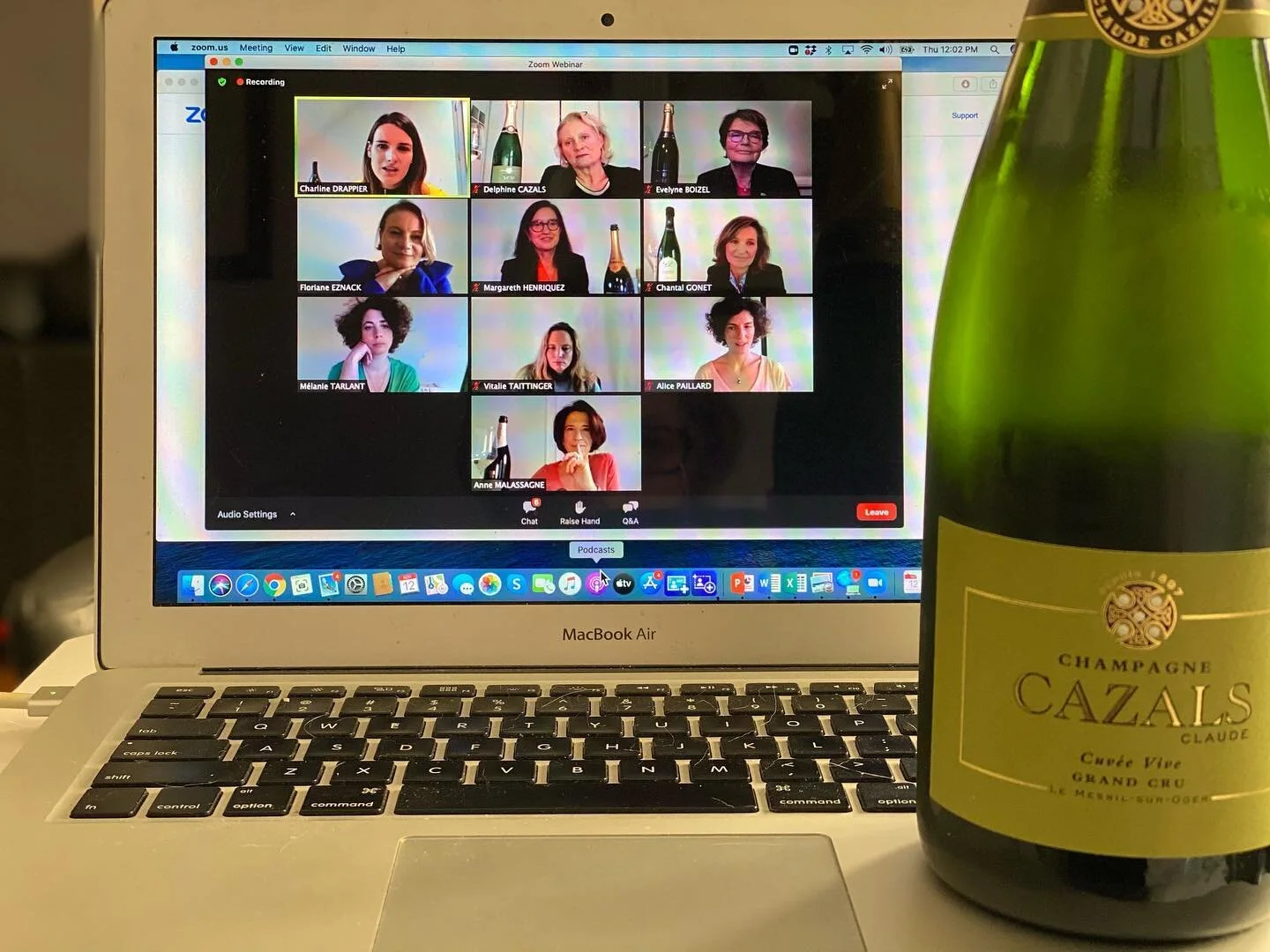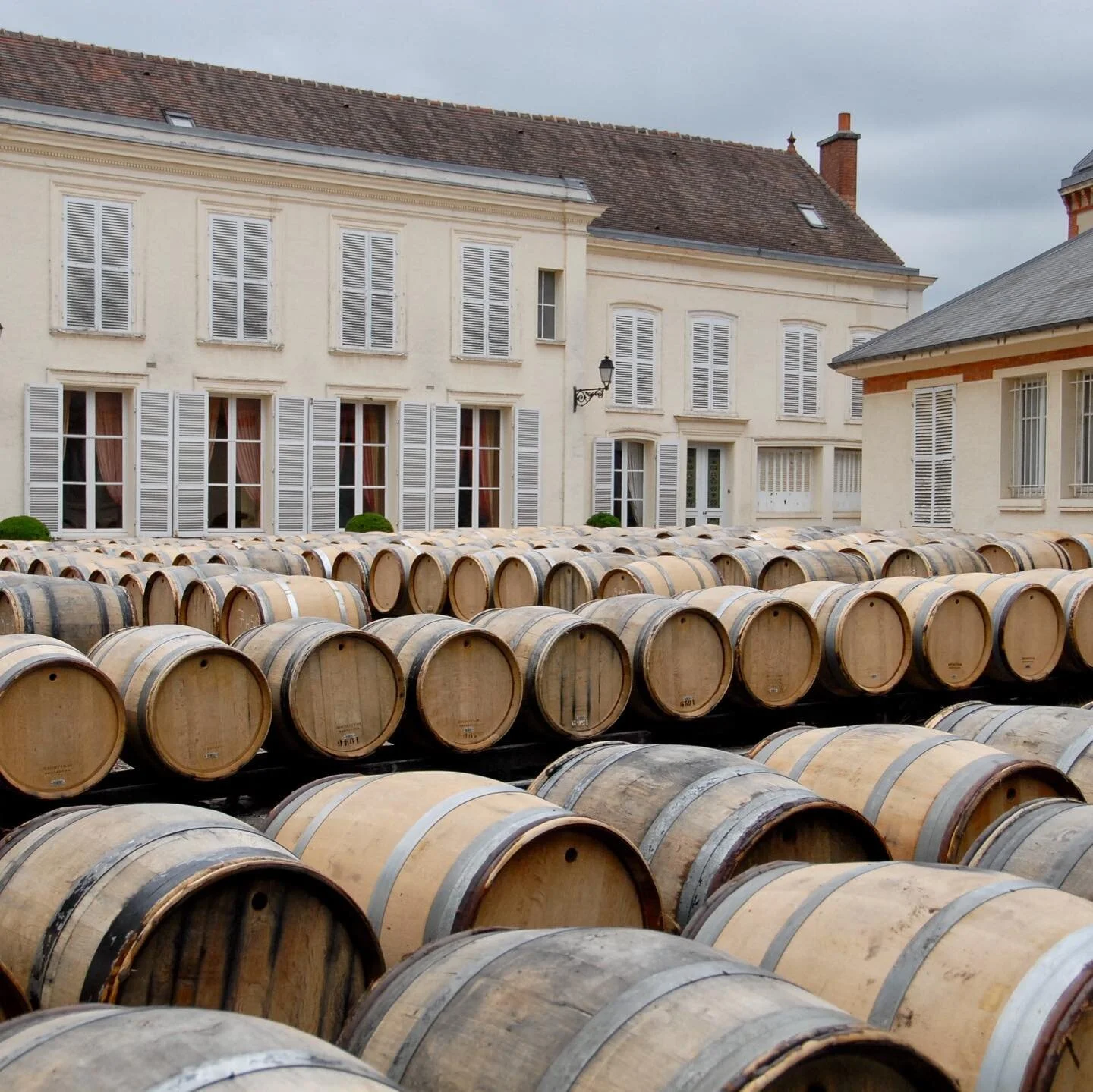Interview: Cynthia Coutu from Delectabulles
I was never that into wine or champagne until I moved to France. I’m from America - the land of beer and $17 bottles of crappy wine, so it’s understandable. But, once I decided to make a life for myself here in Paris, and slowly but surely started to gather a solid group of French people in my circle, I had the realization: wine and champagne are delicious and yes, I do want to learn more about these drinks.
You’ll imagine my enthusiasm when Cynthia Coutu from Delectabulles contacted MHOB. She saw our page and wanted to be friends as she too loves a good book by a female author. I did a little bit of internet stalking on Cynthia and discovered that she has a pretty amazing operation.
Her company Delectabulles is a champagne club for women. As Cynthia filled me in a bit more on what she does and why, she explained that the champagne industry is very male-dominated. And, despite the fact that 70% of wine purchases in France are made by women (this number jumps up to 86% in the United States), just 25% of the world’s wine experts are women. These numbers alone are staggering and yet, not surprising. Cynthia’s mission is simple: to help other women understand what kind of champagne they like and why, and how to get the best bang for their buck.
Cynthia is Canadian and has been living in Paris for a little less than 30 years. She initially came to France to pursue a Master’s degree in Art History, but once she got here, her plans changed (don’t they always?). She worked in the Economic and Commercial Section of the Canadian Embassy for two years, then taught herself to code and joined the Communications team. Working at the Embassy enabled her to meet Canadian artists, writers, heads of state, heads of government, and she even once got drunk with the Canadian Governor General.
Photo by Cynthia Coutu
She later ended up landing a job at the Organisation for Economic Co-operation and Development (OECD), which is headquartered in Paris. She managed their website (plus a lot more) for 16 years but says that the last two brought her to her breaking point. She became so stressed out that she started to get physically ill, as a single working mom she had next to no social life, and she just wasn’t passionate about what she was doing anymore.
As Cynthia contemplated what to do, her sister encouraged her to follow her passion for wine. She discovered that if she wanted to be a wine professional, she needed to complete the Wine & Spirit Education Trust. As she followed the program, she began to realize just how male-dominated the wine industry was. She also began to speak with other female professionals in the wine biz and discovered that most women wanted to understand more about wine but were simply intimidated by it. At the time, Cynthia was also teaching an MBA course at a university in Paris. Coincidentally, her classroom was filled with young women. Her students began reaching out to her for mentoring and guidance and Cynthia realized that there was a huge need for a mentor/mentee system exclusively for women.
Photo by Krystal Kenney - Miss Paris Photo
And so, Delectabulles was born! Cynthia says that at the beginning it was supposed to be a champagne networking club that used champagne as a pretext to get older and younger women to connect. After her first meet-up, she realized that women could tell her if they preferred champagne X or champagne Y, but they didn’t know why. That’s when Cynthia decided to start teaching champagne masterclasses for women. And, early on, she also made a conscious decision to only use champagnes and other sparkling wines made by women. It’s her small way of supporting women in the male-dominated industry.
Soon enough, women began asking Cynthia to take them to the Champagne region of France to explore the vineyards there and to meet the producers of the champagnes they had been tasting and learning about. Things really took off and Cynthia was soon working with travel agencies. And, she was also working on the networking side of Delectabulles by working with like-minded female entrepreneurs in Paris. Some partnerships included a female shoemaker as well as a female yoga instructor. Women supporting women!
“I’m really trying to support fellow female entrepreneurs in Paris.”
Since Covid-19 hit and traveling abroad isn’t an option, Cynthia had to pivot Delectabulles to keep up with our changing world. She decided to turn her in-person masterclasses and tastings into online webinars. When deciding what kind of webinar to do first, Cynthia asked former clients what they would be interested in. The unanimous response was champagne and food, and she ran with it!
Today, she offers her original webinar on champagne and food as well as private group options. But, the webinar that caught my eye as soon as I saw the title is her Bubbly Badasses: Women and the History of Champagne (which you can read more about here on Delectabulles’ calendar of events).
Photo by Cynthia Coutu
As you can imagine, the more I learned about Cynthia, Delectabulles, and the role of women in the champagne industry, the more interested I became. I caught up with Cynthia way back in December (time flies!) and she told me her story. One question that kept coming up for me and that I really wanted some insight into was: Why is champagne such a male-dominated industry? Here’s what Cynthia told me:
Cynthia Coutu: “Well it’s not just champagne. It is the same for the other wine appellations in France. There might actually be more women winemakers in the Champagne region, but there are no official numbers to back this.
“In the 19th century, people really began to understand the science behind making champagne. Generally speaking there was a big boom in the production of champagne in the 19th century and you had some “key widows,” like Madame Pommery, Madame Clicquot, Madame Henriot, Madame Laurent-Perrier. You had all of these widows, their husbands died and they took over the [champagne] business.
Photo by Cynthia Coutu
“Then, in the 20th century, you had two World Wars. And all of the men were away fighting, at least during WWI, and so it was the women, old men, and children who were left to run the show. And champagne was particularly impacted during WWI. They were fighting in Champagne. The front was four miles outside of Reims.
“This applies to a lot of industries, but because a lot of women had to take over in the factories and everything else during the war, they were like, “I don’t want to go back to being a housewife! That was fun, that was challenging.” And this was right around the same time they got the vote in certain countries and so on. But I think it’s thanks to a lot of the widows in the 19th century that really paved the way for women to run champagne houses.”
With this historical knowledge, Cynthia decided to look further to determine why the champagne industry continues to be so male-dominated today:
“In France, it’s really hard to get official statistics about the role of women in the wine industry because they’re not allowed to ask gender questions. So I knocked on all the doors that I could. The latest survey was from 2010. It applied to all of France and about 27% of the wineries were owned or managed by women. So a bit less than a third.”
She wanted to look further, and so took to the website for the Syndicat de Grandes Marques (Union of Major Brands) for champagne:
“Out of the 350 champagne houses, about 70-80 are part of this union and on their website, they list the names of their president, their director, their cellar master. Out of the 76 houses, 13 had a female cellar master. So that’s about 17%. 28% had a woman on the management team. But the Syndicat de Grandes Marques is just a small subset of the 350 Houses and 4,500 small estates. When you talk to the women in champagne, there are a lot out there making champagne, especially in the small estates. There’s still a champagne, “glass bottle ceiling.” In the decision-making positions, there are trade unions in Champagne for the growers and for the houses but there are not many women on the boards of the trade unions. There’s still a lot of work to do for parity, that’s for sure.”
Cynthia is a part of the solution for parity. Delectabulles puts women in the champagne industry in the spotlight, which, here at MHOB, is right up our alley.
If you’re interested in joining one of Cynthia’s webinars, click here to visit the Delectabulles website! If you’d like to follow her on Instagram, click here and if you prefer Facebook, click here.
Cover photo by Krystal Kenney - Miss Paris Photo




